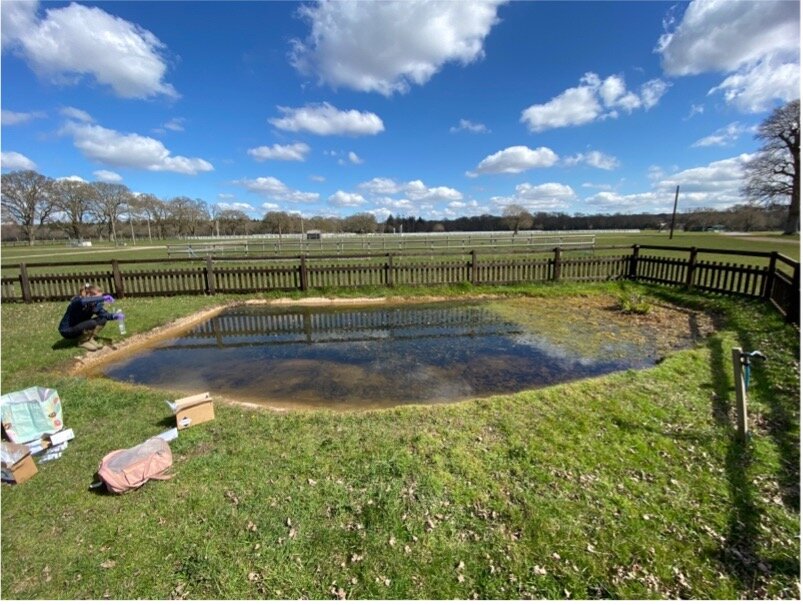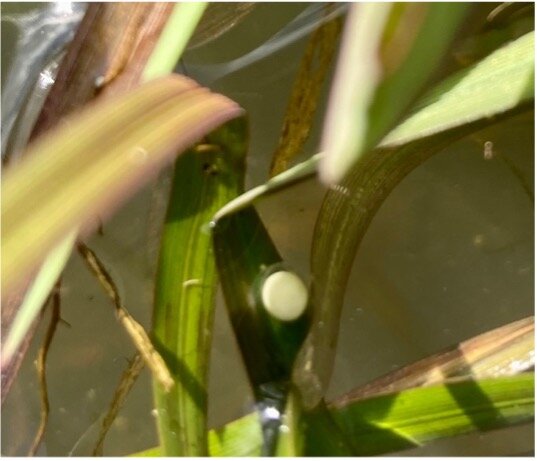Last month three interns (Anna Kogioni, Lyvy Hall and Alys Cervetto) joined us from the MSc in Species Identification and Survey Skills course at the University of Reading. Our blog will be turned over to the three of them for a monthly post talking about their experiences and the skills they gain working with us.
The last four weeks have been a mixture of lectures, surveys and report writing. Members of the team have taught them species identification, report writing, how to create digitised maps, and the appropriate methodologies to carry out when conducting surveys.
eDNA sampling
They have all been very much thrown in the deep end carrying out a wide range of ecological surveys including eDNA surveys, great crested newt surveys, reptile surveys, preliminary roost assessments (PRA) and preliminary ecological appraisals (PEA).
They have had the opportunity to observe great crested, smooth and palmate newts of both sexes, as well as slow worms and common lizards.
Apart from field work they have also helped with desk work including desk studies for PEA reports as well as tracking the contact details of multiple landowners that had ponds in their lands which we had to survey for other projects nearby.
Next month the bat survey season kicks off so the interns will get a chance to use bat detectors, infra red and thermal camera and learn how to complete bat call data analysis.
Slow worm
Great crested newts
newt egg
“Some highlights have been improving my plant identification skills, learning survey methodologies and improving my report writing skills and legislation knowledge” - Lyvy
“I have become more aware of the fact that the effects of habitat alteration during development can even sometimes affect species not present on site and to properly assess those impacts a landscape scope is important”. - Anna
“I’ve loved that no two days are the same and that I get to see Britain’s wildlife up close”. - Alys





